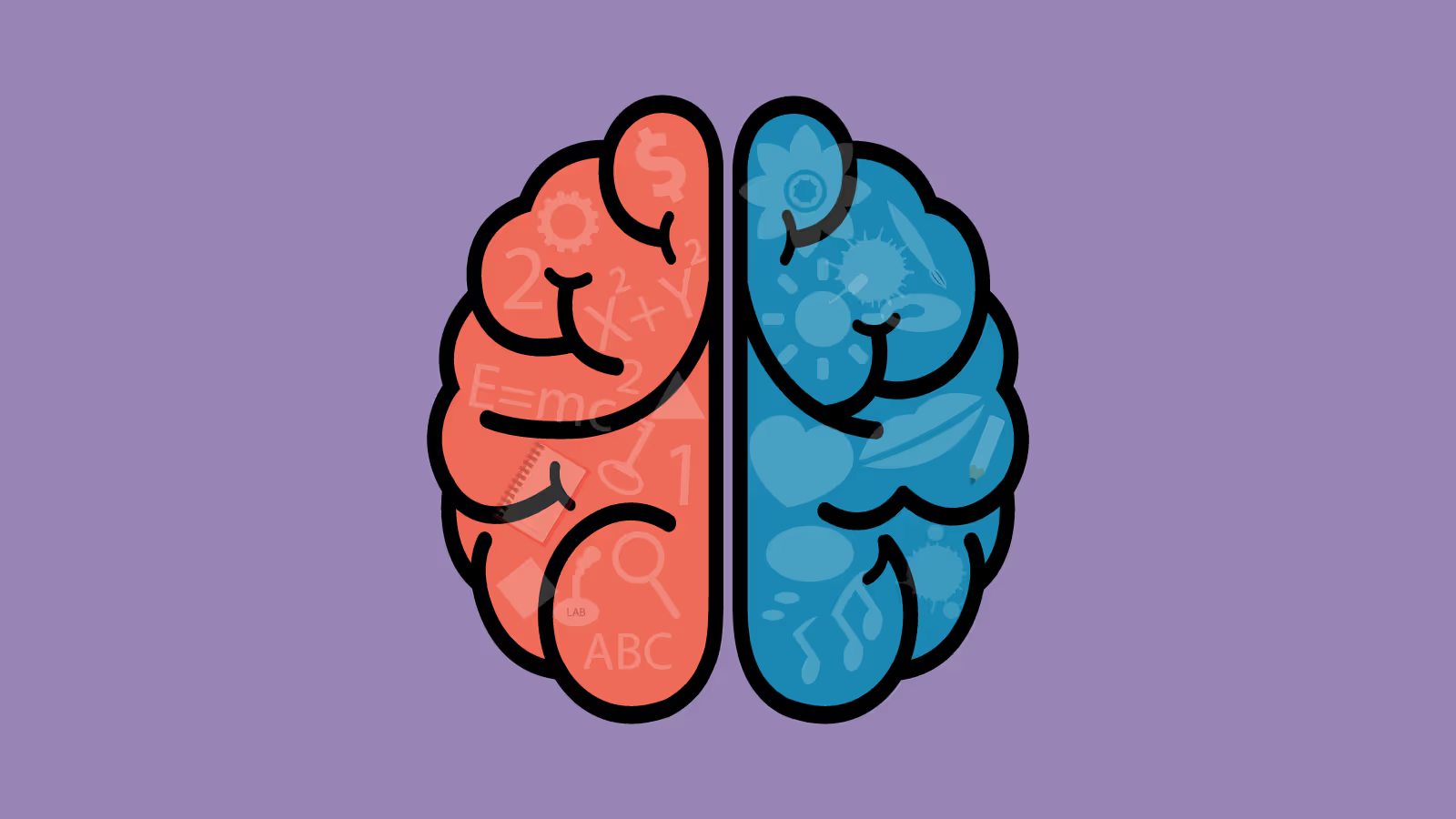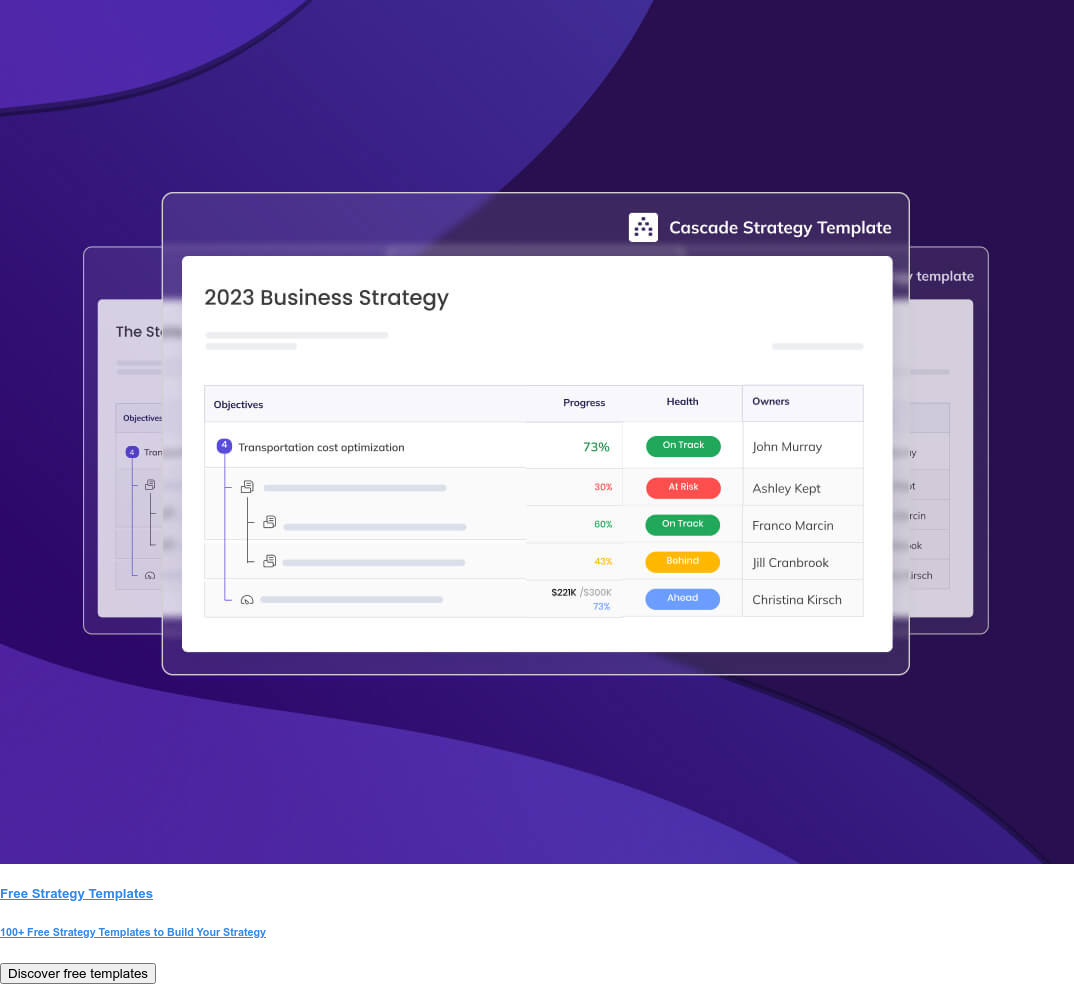What is strategic thinking?
Strategic thinking is actually a little hard to define. The reason is that its definition contains aspects which are often seen as juxtapositions. If I had to pick four words that summed up what strategic thinking is all about, I would choose:
- Agile
- Aware
- Systematic
- Conceptual
How can one be both agile and systematic though? Aren't they somewhat contradictory to one another? I think the answer to that question is precisely why strategic thinking is so sought-after - because it embraces thought-processes from a range of different perspectives.
Let's dive into each of these concepts a bit deeper:
Agile
Strategic thinking is all about plotting a successful path to a given outcome. We know that in the real-world, circumstances change regularly. Sometimes negatively (we need to adjust our plans to compensate for an issue) and sometimes positively (we see an additional opportunity that we can take advantage of).
Either way, the need to be agile in our approach is critical to success and a huge component in strategic thinking. A huge part of that agility is in the art of knowing when we were wrong, and being able to recognize that quickly enough to do something about it.
Aware
You can define awareness in a variety of different ways. Undoubtedly, one needs to be aware of the changing circumstances around us which we can then act upon through our agility. But what I'm talking about here is more personal than that - I'm talking about emotional awareness (or as it's more commonly known, emotional intelligence).
The truth is that strategic thinking often involves pitting yourself against others trying to achieve the same goals as you. If you can understand the psychology of the people that you're competing with, it will give you a huge competitive edge when it comes to predicting their next move. Even if you're not in a competitive environment, the ability to understand what motivates people will give you a huge helping hand towards your goals.
Systematic
Whilst on the one-hand strategic thinking is all about agility - it also requires an element of process. More specifically, the best way to learn is to try (and often fail). In-order to maximize these learnings, you need to define success, observe the process, then choose the right moment to exit (if things aren't working out). This is called systemic learning, and requires a certain amount of patience. The worst thing a strategic thinker can do is to start jumping around between different strategies without fully understanding why each failed or succeeded.
Conceptual
This is a bit more of an abstract concept than the other aspects we've talked about. One of the skills that all strategic thinkers have, is the ability to see the whole picture at once. They can see the beginning, the middle and the end of their strategy. But in-order to be able to do this, you need to sacrifice a significant amount of detail about the strategy. It's just not possible to simultaneously get into a microscopic level of details around your plans, whilst maintaining sight of the bigger picture and all of the threats and opportunities that surround it.
How can I tell if I'm a strategic thinker?
To answer this question, I started off by looking at my own experiences, and actually reached out to some people whom I trust to ask the question:
Why do you think I'm a strategic thinker??
Here's what a couple of them said...
Vincent, an ex-boss from the corporate world:
"You never seemed to react to things instantly. I'd come to you with exciting or worrying news, but rather than react emotionally to it, you often came back and asked me a question instead. To be honest, sometimes it was frustrating, because all I really wanted was a reaction! But I could see that your brain instantly went to thinking about what this thing meant for something else we were working on.
One of the things that stood out, was that you always seemed pretty focused on the top 2 or 3 things that we were prioritizing as a business - and that you related every event that occurred back to one of those things. It meant that you were definitely one of my go-to people as soon as I had anything new to share. I felt like telling you was almost a way to unload it from my own mind, knowing that someone else was going to do something with the information. Kind of like the feeling of writing a shopping list - so you can forget about something for now, knowing that you've got the information stashed away for later when you need it."
When I reflect on this information, my conclusion is that for Vincent, strategic thinking means (a) being focused (b) being calm and rationale, and (c) being able to connect the dots between things and how they impact one-another. Another thing that I realized, was that because Vincent would often come to me first with news about the business, I must also have been very well informed compared to most other people. I don't know for sure - but I suspect that helped a lot in terms of helping me to position myself as a strategic thinker.
Jon, my step-father:
"You didn't get sidetracked by detail when faced with a problem or a question. Alternatives were always considered regardless of what you might privately think. You never rushed to a solution but instead weighed various pathways before arriving at one. You responded to situations by saying: 'OK, we could do x, y or z. If we go with x then these are the implications, if y then this, etc etc.'
You also put the needs of the group first when deliberating pros and cons."
Jon knows me in an entirely personal capacity, so what he's saying isn't reflective of my professional persona, but how I am at home. Despite that difference, the themes of what Jon sees as strategic thinking match very closely to how my old boss Vincent described them: focus, calm decision-making and perhaps even a slight degree of emotional disconnection that allows you to stay focused on the big picture.
That last point around emotional disconnection gives me cause to pause for a moment. I'd expected one of the responses to my 'why do you think I'm a strategic person' question to be instinct. The ability to respond quickly to a situation and somehow 'know' what to do even with limited information available. But neither of them said that. In-fact they almost said the opposite - that from a strategic perspective, it's often better to override instinct with thought and consideration.
So let's turn this into a set of questions that you can ask yourself:
- Do you find it easy to focus on a single-minded objective?
Or do you find yourself easily distracted and constantly changing direction? - Do you have the ability to consistently stay calm and rational in the face of adversity?
Or do you react purely instinctively with the rationality kicking in later on? - When you receive a new piece of information, are you able to instantly relate it to your single-minded objective and how it will affect the desired outcome?
Or do you struggle to see the implications until they are pointed out to you by someone else? - Are you one of the first to know about new information that could affect your outcome?
Or do you find that information often comes to you second or third hand via people around you? - Are you able to quickly admit your mistakes?
Or do you find yourself more likely to be defensive about them?
If you answered yes to the majority of the questions above, then I'd say that you're pretty well placed to position yourself as a strategic thinker.
Tangible steps you can take to be a more strategic thinker
Firstly, I want to say that I don't believe that anyone should try to fundamentally change who they are. I believe passionately that we're at our best when we embrace our true-selves. But there are still a few small adjustments you can make to improve your strategic thinking:
#1: FOCUS
Whatever you're working on - figure out the top 3 or 4 most important outcomes. Weigh every decision you make against these outcomes. Don't be afraid to dismiss things that don't have a directly positive effect on them. You'll inevitably find that sometimes you miss opportunities because of this. But without single-minded focus, you can't even start to be seen as strategic. Define your focus areas and share them with those around you.
#2: STAY CALM
Losing your cool is a sure-fire way for people to dismiss you as a hot-head. A person who is quick to anger is seen as being the very opposite of strategic. It's not about being entirely dispassionate - but rather about being passionate only about the main things that you're focused on. When someone tells you something important - don't react straight away. Instead, ask a question and buy time to figure out how this new information affects the thing(s) that really matter.
#3: STAY INFORMED
You need to find a way to position yourself at the center of the action. Take every opportunity to learn, gather information and ask questions. Get creative - offer to write up minutes for management meetings for example. Don't worry about trying to connect the dots for all of this information right away. Just gather as much info as you can, and then reflect on it later. You'll be surprised how many patterns appear and how many soft conclusions you can start to draw.
#4: CONNECT THE DOTS
Now that you're armed with information, it's time to connect the dots. It's harder than it sounds though! Connecting the dots means taking a step back from all the information swirling around in your head, and looking for patterns. Ideas, themes or threads that connect things together to give you a story. Whenever I'm trying to figure out what's happening in a given situation, I always look to basic human psychology.
Most of the things we do, ergo most of the things that happen, are driven by a few simple human traits. The most common ones I see are greed, insecurity and love. Once you figure out why someone is doing something, figuring out what's going to happen next becomes a whole lot easier.
For me, this blog post has been about exploring a facet of my personality that's played a large part in bringing me to where I am today. I hope it's been interesting and maybe even useful for you too.
Most of all, I would love to hear about your own experiences of what strategic thinking actually means. Do you agree with my definitions and advice? Leave a comment, tweet us @cascadestrategy or drop me a line.



.avif)

.png)
.jpg)
.jpg)
%20(1)%20(1)%20(1)%20(1)%20(1).png)



